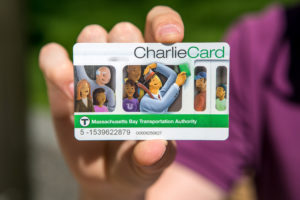Transit Benefits: Are You Missing Out?
September 21, 2022
What are the benefit options?

Transit/Parking Accounts (Section 132) allow employees to set aside funds on a pretax basis to be reimbursed for transit and/or parking expenses. They are tax savings to both the employee and employer, as well as funds that can be rolled over from year to year. Employees do not lose unused funds in their account.
Option 1: Transit Reimbursement Accounts
A Transit Reimbursement Account is a provision under the Internal Revenue Code Section 132, that enables employers to allow their employees to pay for certain commuter transit expenses, on a tax-free basis through payroll deductions and deposited into a Transit account. These expenses would be taken out before the Federal tax, FICA tax, and the State tax. The Transit Reimbursement Account also allows the employers to save on the matching FICA that they would have had to contribute on this amount. In 2022, the maximum is $280/month.
How does it work?
An employee is able to elect an amount deducted from their gross paycheck, before taxes (not to exceed the monthly allowable amount) and deposited into a Transit Reimbursement Account. The employee would obtain a receipt for eligible transit expenses and submit the receipt for reimbursement. If a debit card is available to the employee, the debit card may be used to pay for these eligible transit expenses.
Eligibility
Eligible expenses include:
- Charlie cards
- Subways
- Buses
- Ferries
- Commuter rails
- Vanpools
- Commuter bikes
- Rideshares
NOTE*** Tolls, gas, or other driving-related expenses, such as repairs, are ineligible
Please visit the MBTA’s (Massachusetts) website to purchase and maintain a Charlie Card for Subways and Buses, Ferries and Commuter Rails: https://www.mbta.com/fares.
Through this link, you can calculate fares, visit the Charlie Card Store to order, register and fund your Charlie Card and purchase Commuter Rail and Ferry passes. This can be done through any state’s public transportation.
Option 2: Parking Reimbursement Account
A Parking Reimbursement Account is a provision under the Internal Revenue Code Section 132 that enables employers to allow their employees to pay for certain commuter parking expenses on a tax-free basis through payroll deductions and deposited into a Parking account. These expenses would be taken out before the Federal tax, FICA tax, and the State tax. The Parking Reimbursement Account also allows the employers to save on the matching FICA that they would have had to contribute on this amount. In 2022, the maximum is $280/month.
How does it work?
An employee elects to have an amount deducted from his/her gross paycheck, before taxes (not to exceed the monthly allowable amount) and deposited into a Parking Reimbursement Account. The employee would obtain a receipt for eligible parking expenses and submit the receipt for reimbursement. If a debit card is available to the employee, the debit card may be used to pay for these eligible parking expenses.